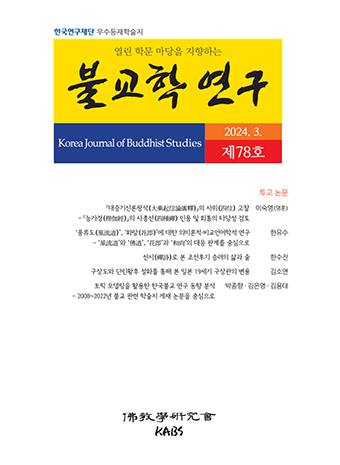Abstract
References
Sorry, not available.
Click the PDF button.
Information
In Surangamasutra, Buddha denied our common belief that Mind exists in Body. We believe that the Self is composed of Body and Mind in Body. We separate Mind as Subject from World as Object and regard Mind as consciousness. This belief results in the conviction of the existence of the Self that brings about many sufferings in life. In order to be delivered from sufferings we should know that there exists no Mind. In the discourse with Buddha, Ananda argued that the Mind exists in Body and other six places. Ananda's belief about the existence of Mind in Body is similar to Descartes' Mind-Body theory. Against his opinion, Buddha presented counter-examples. In this argument Buddha used Nagarjuna's reduction to absurdity and Dignaga's Buddhist Logic. He concluded that there is not Mind in seven places. His conclusion does not mean that there is nothing. According to his argument, if there is nothing we have no conscience as the wood and the rock do not when we are delivered from the worldly existence. But Buddha didn't deny the existence of the true Mind, namely Tathāgatagarbhavādin. In order to show the existence of true Mind, his argument first denied the Existence of Mind. The analysis of Mind in Buddhism is very similar to the modern Philosophy of Mind because both of them equally regard Mind not as Entity of a single quality but as a collection of psychological phenomena. But Functionalism explains that the psychological world is based on the physical world. So it reduces Mind to the physical functions. It also misunderstands the dependent rising in Buddhism as the relations of cause and effect. Above all Functionalism presupposes the existence of Mind. Seen In this respect, it differs from Buddhism.
Click the PDF button.
- Publisher :Korean Association of Buddhist Studies
- Publisher(Ko) :불교학연구회
- Journal Title :Korea Journal of Buddhist Studies
- Journal Title(Ko) :불교학연구
- Volume : 13
- No :0
- Pages :97~129


 Korea Journal of Buddhist Studies
Korea Journal of Buddhist Studies






